For more amazing details on Desmond Doss’ life and achievements, request your free copy of his biography, The Hero of Hacksaw Ridge.
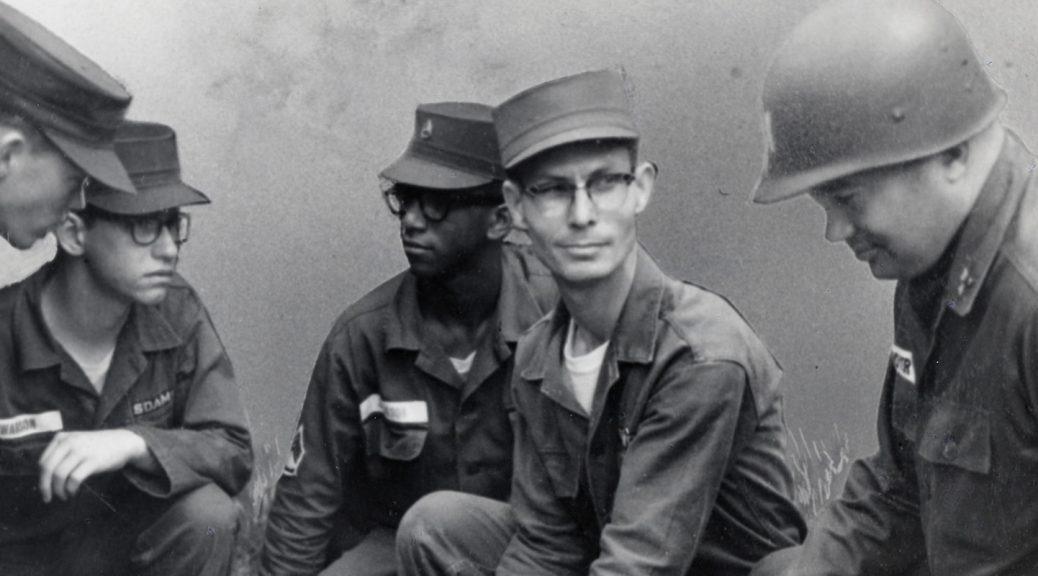
Doss’s actions in Okinawa are deserving of our attention and admiration. Yet the unarmed medic was a hero before he ever stepped foot atop Hacksaw Ridge.
By Linden Chuang.
“Most Medal of Honor winners, they’ll do things in an instant. It’s a decision they make and they do something insanely courageous and heroic,” explains Hacksaw Ridge director Mel Gibson to the Sydney Morning Herald.
“But with [Desmond Doss], it wasn’t an instant. It was over and over again.”
Indeed it was. Seventy-five times, to be exact.
Well, nearly exact. Doss’s commanding officer believed the army medic saved 100 lives over the course of that one night in Okinawa. The ever-humble Doss believed the number to be closer to 50.
Doss’s heroics atop Hacksaw Ridge are deserving of our attention and admiration, but those 50, 75 or 100 rescued soldiers are not what Gibson is referring to when speaking about Doss’s relentlessness.
“He did [it] again and again in the Philippines and Guam.”
It’s an interesting point for the director to bring up, considering he chose to leave out Doss’s first experiences of war from the film (which depicts his regiment heading straight to Okinawa).
In March 1944, Doss and the rest of the 77th Infantry Division shipped out to the island of Guam. From the start the battles were bloody and intense.
“Them boys fired them machines guns and things ‘til the barrels was turning red,” recalls radio operator V L Starling in the Doss documentary The Conscientious Objector.
“It was scary,” says company aid man Daniel Gaudenti. “Really scary.”
The medics had the most to fear on the Guam battlefields, as the Japanese would target them in order to break the morale of the other soldiers. Doss used the cover of darkness as his ally in attending the wounded, even if medics weren’t supposed to head out onto the battlefield during the night.
Starling remembers Doss saying, “Them guys that’s wounded out there I gotta go see about them. That’s my job.”
“If they wasn’t dead he’d take care of them and drag them back,” adds Starling. “I don’t know how he kept from getting shot by the enemy.”
It didn’t take long for stories of Doss’s heroics to circulate. Even Commander Jack Glover, who blatantly told Doss he didn’t want him by his side in war, started to take notice.
Battle after battle, “there was always some story in regards to Desmond T Doss, the medic, who absolutely refused to allow wounded soldiers to not be treated,” said Glover.
One story from the Philippine island of Leyte, where the 77th Division were sent following Guam, saw Doss run 90 metres through machine gunfire to rescue two wounded soldiers. One of the men was already dead when he reached them, but Doss managed to carry the other to safety.
Doss was awarded the Bronze Star Medal for his efforts in Guam and the Philippines. He would later receive the Congressional Medal of Honor for saving the lives of 75 wounded soldiers in Okinawa.
“It was over and over again.”
Gibson is right. They were different battles, but the same Desmond Doss.
Image courtesy of Desmond Doss Council.
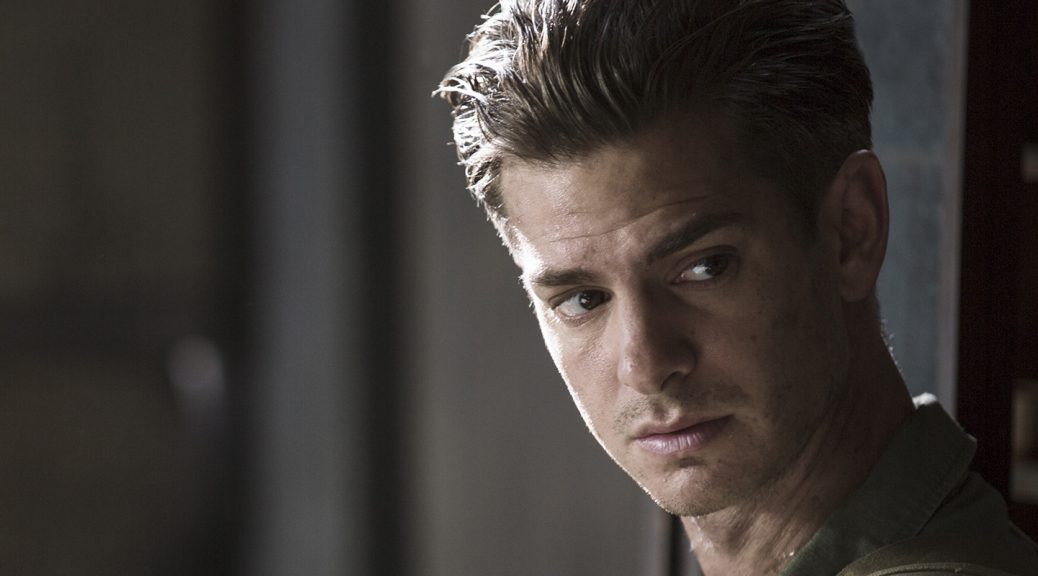
It’s no secret that actors and actresses can be deeply impacted by the people and characters they portray. So what happens when they’re asked to step into the shoes of someone like Desmond Doss, an inspirational man of conviction?
By Linden Chuang.
Six months before Hacksaw Ridge hit the big screen, another faith-based film was doing the rounds in cinemas in the United States.
Miracles from Heaven, which tells the true story of a mother coming to terms with her daughter’s sickness and miraculous healing, is a far cry from the war epic that is Hacksaw Ridge. Yet the power of this humble Christian film should not go unnoticed.
Hollywood A-lister Jennifer Garner (Daredevil, Dallas Buyers Club), who plays lead character Christy Beam in the movie, credits it for bringing her back to church.
“I grew up going to church every Sunday,” the 43-year-old actress told the Today show. “The thing about this film was it kind of encouraged me to re-engage in just participating—not just believing—actually participating in raising my children so that they have the same background my parents gave my sisters and me.”
It’s no secret that actors and actresses can be deeply impacted by the people and characters they portray. This can be a positive experience, as in Garner’s case, or a negative one, such as we saw with Health Ledger’s accidental drug overdose following his iconic performance as the psychotic Joker in The Dark Knight.
And so we return to Hacksaw Ridge, with British-born actor Andrew Garfield (The Social Network, The Amazing Spider-Man) stepping into the role of war hero Desmond Doss.
The 33-year-old has been lauded for his portrayal of the conscientious objector by film critics as well as Doss’s family and friends. But what sort of impact did the experience have on him personally?
Garfield said he cried the first time he read the script for Hacksaw Ridge. Watch his interviews during the film’s press tour and it’s clear the actor remains in awe of Doss’s story.
“The character was so compelling—it was one of those stories that rang a bell inside me,” confessed Garfield to TIME magazine. “One of the main reasons I was drawn to doing it and to playing him was his awareness of his own ego and humanity, but his faith was the strongest part of him.”
In stepping into Doss’s skin—or “organs” (stomach, gut, heart), as Garfield put it—the actor said he experienced a sense of peace and security beyond what he has felt in his own life.
“I was learning so much about myself through attempting to inhabit the him in myself,” said Garfield. “I was so soothed spending time with Desmond because he managed to transcend or get underneath the pervading cultural attitudes through his faith and become a symbol of, ‘Do unto others as you would have them do unto you’; of, ‘I will sacrifice myself for my brother.’”
Let’s be clear: Garfield is not a Christian. He is, however, “very interested in what it is to live a very spiritual life”. Perhaps that’s why he’s following up his time with Doss in Hacksaw Ridge with Silence—another faith-based film in which the actor plays a Jesuit missionary priest suffering through persecution in 17th century Japan.
“This idea of not being able to do these things without help, without some help from something greater than yourself . . . that’s really a beautiful thing to explore,” Garfield told RELEVANT Magazine.
The baby-faced Brit stepped out of Doss’s army boots many months ago, and Hacksaw Ridge is already on its way out of cinemas. Despite this, Garfield is confident the film will stay in the hearts and minds of audiences for some time to come.
“I really believe in this man’s story having the power and potential to send ripples out into the entire world.” [1]
[1] Garfield said this while promoting Hacksaw Ridge during an appearance on Jimmy Kimmel Live.
For more amazing details on Desmond Doss’ life and achievements, request your free copy of his biography, The Hero of Hacksaw Ridge.
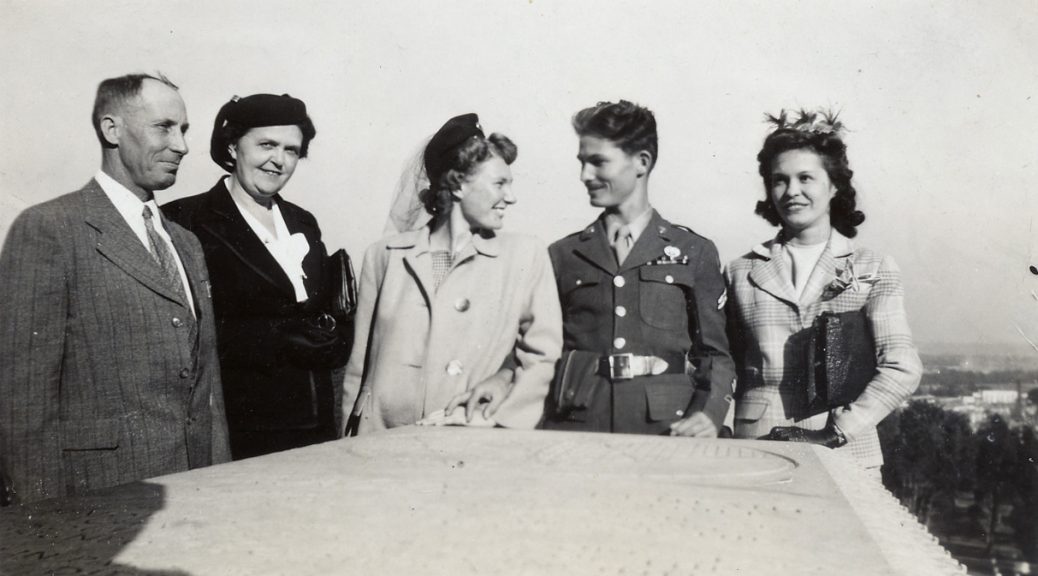
The battle in Okinawa, Japan, began on April 1, 1945. A week earlier, on March 24, Desmond Doss penned the following letter to his mother, Bertha, and father, Tom.
Dear Mother and Dad,
This has been a nice, quiet Sabbath morning in which I have enjoyed making believe I was at home in church. First I took notes of how I thought the church would be if I were there, together with Dot (Dorothy), you know.
After I had my Sabbath school planned I started off with silent prayer, asking God to protect my loved ones back home and to give me a Sabbath day’s blessing. He certainly answered my prayer. I enjoyed my Sabbath school even if I had to take all the parts myself.
For my opening song I selected “Take the Name of Jesus With You.” I paid strict attention to the words. There is a sermon in each song if we really take notice of the words and apply them to ourselves. Then I asked God to continue to bless us all as He has in the past… I continued my service with the song “My Hope Is Built on Nothing Less”; you know, on the solid rock. There is a lot in this song as well as in the others.
…I am so glad the Lord can use me in His work. I asked Him to help us all do our part and finish giving the message of His soon coming. I thanked Him for using me to help save lives, but asked Him also that it might be His will to let me save some part in saving at least one soul. I know I cannot do anything of myself, but with God all things are possible. I want to be as good a missionary as possible now, so that I can do better work when I get back home.
For the next song I sang, “I Am Thine, O Lord”, and then reviewed the former Sabbath’s lesson, went through today’s lesson, and looked over next week’s lesson. These lessons are wonderful; they are a great encouragement to me. I am not sure that your lessons and memory verses are the same as mine, but Rev. 3:10, 11 is encouraging; also the ninety-first psalm. I got more meaning out of these texts than ever before; they are so appropriate for this time. I believe I got more truth out of them than most people back home. You see, I have witnessed the fulfilment of these inspired words with my own eyes. I know God has more power than all the world put together; so I pray that the Lord’s will and not mine may be done, for God knows what is best and I don’t.
After my prayer I sang “Saviour, Like a Shepherd Lead Us”. Then I thought of how the children in our home Sabbath school used to come in on the last stanza and repeat the memory verse, so I thought I would play their part by reading again God’s promise to me in Rev. 3:10, 11.
I closed with “Blest Be the Tie That Binds”. Then I thanked God for the fine Sabbath morning and the blessing He had given me. I got more out of this Sabbath than usual, though it may not sound like so much as I write it.
I then went for chow and came back and started writing you. I feel my chances of returning home are better than before, but even at that I do not allow myself to get too much confidence, for I know that overconfidence does not pay. If I fail to do my part in protecting life, the Lord will not help me, so I try to do my part and trust the Lord for the rest.
Well I sure will be glad when this war is over and we can come back home and live Christian lives among Christian associates. One thing the Sabbath school lesson brought out that impressed me is that if these experiences in the Army do not make us good Christians, nothing will. If we do not live up to all we know to be right, then we are not Christians. I know that if I do not live up to all the light I have, and if anything happens to me, I am a lost soul. That is why every hour of every day I endeavour to carry out all I know to be right. Life is not sure for anyone, so I try to keep ready for anything that may happen.
I believe that if the Lord wills, I will come through this and return home a much better Christian. This Army experience has made me stand on my own feet for Christ. I can see why the Lord saw best to separate us for a while, for this has brought me a deeper experience. I am so glad Dot is doing her part for the Lord. She will become better rooted and grounded in the faith by teaching this truth… to others. Keep praying for me, because I know God answers prayer.
Des.
Image courtesy of Desmond Doss Council.
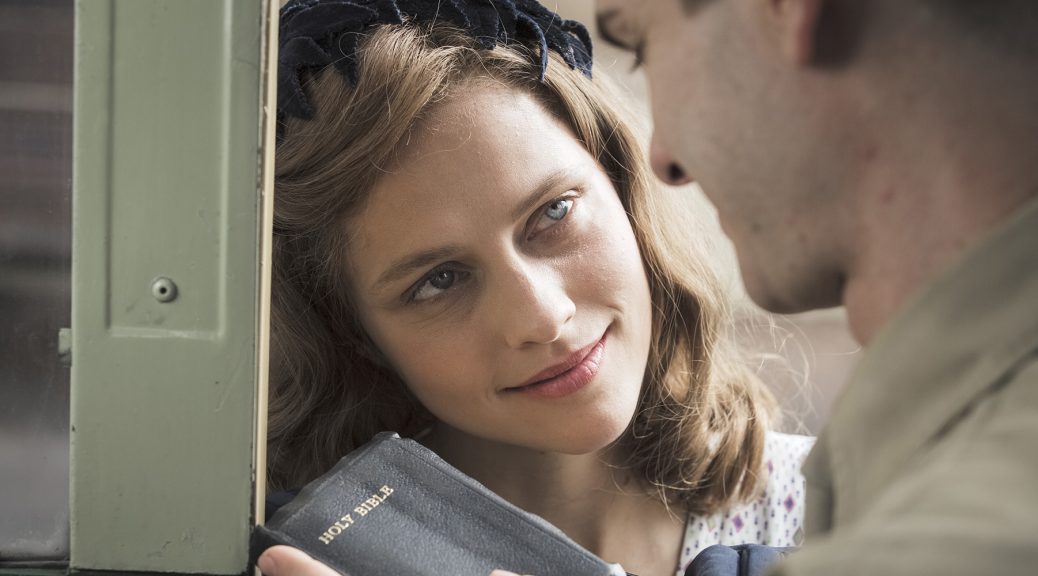
By sticking by her husband’s side through thick and thin for 49 years, Dorothy Doss really exemplified the old adage “behind every great man is a great woman”.
By Linden Chuang.
It would be easy for those who have watched Hacksaw Ridge to label Dorothy Schutte as the “love interest” or “pretty face” in the movie. Doing so, however, would be a tremendous injustice to the woman who was as much a champion of faith as her war-hero husband.
The love between Dorothy and Desmond was anchored in faith. The two met at a Seventh-day Adventist church in Lynchburg, Virginia, and were married on August 17, 1942. Dorothy said she married Desmond because she could trust him. “He was a good Christian and I figured he would help me go to Heaven.”
If that doesn’t sound very romantic, don’t worry—there were plenty of fuzzy feelings too. “He was the first one I ever kissed,” she added.
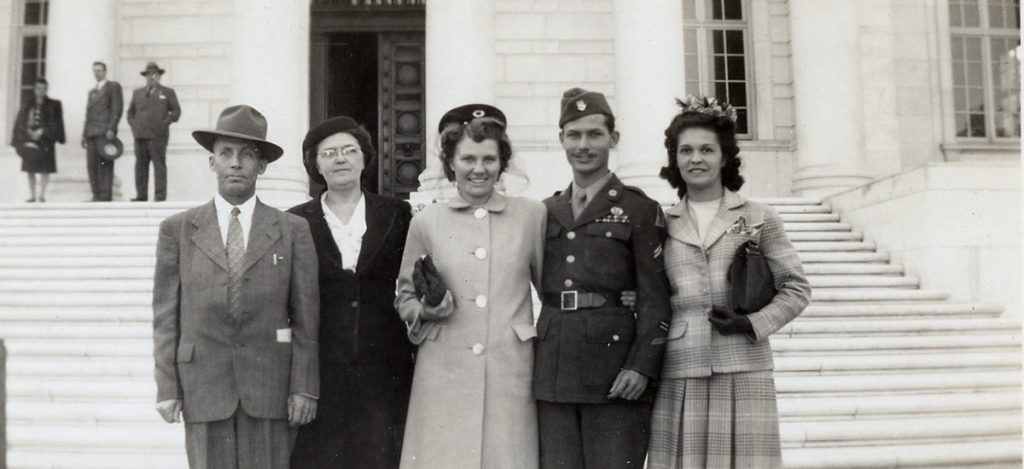
The Bible which Desmond so famously carried through his army experience was a gift from Dorothy, which she inscribed with the following message: “If we do not meet another time on this earth, we have the assurance of a happy meeting place in heaven. May God in His mercy grant us both a place there.”
Desmond returned from the war but with scars that wouldn’t heal so swiftly. He would spend the next six years in hospital getting treatment for Tuberculosis, with the disease leaving him 90 per cent disabled and claiming one of his lungs and five ribs.
With Desmond confined to the hospital bed, Dorothy would raise their son Desmond “Tommy” Jr alone for the first five years of his life. She also completed her nursing training to help support her family financially.
Despite the hardships, Dorothy’s faith and love for her family remained strong. In 1976 Desmond lost his hearing due to complications with the Tuberculosis antibiotics. Dorothy began writing messages to him so they could communicate, jokingly calling herself his “hearing ear dog”.
Dorothy would have her battles with sickness too. She was diagnosed and underwent surgery for breast cancer in 1982. Her health improved over the next eight years before rapidly deteriorating.
On November 17, 1991, the Dosses were on their way to the hospital for one of her regular treatments when Desmond lost control of the car. The vehicle plunged down an embankment and Dorothy was killed as it rolled over. According to an interview with Tommy in the Chinook Observer, the accident happened less than a mile from their home at Lookout Mountain. He believes Dorothy died instantly. She was 70 years old.
They say “behind every great man is a great woman”. Yet even this quote fails to aptly describe Dorothy Schutte Doss. In 49 years of marriage she was right by her husband’s side as his spiritual counterpart, and the two of them accomplished great things for God as a result.
These sentiments echo Tommy’s own thoughts of his mother. He said, “She’s the most underrated person in this whole thing. So much of what has happened to my dad would not have happened had it not been for her.”
So the next time you watch or read the story of Hacksaw Ridge, think about the faith of Doss. Both Mr and Mrs.
The image of Desmond, Dorothy and other members of the Doss family is provided by the Desmond Doss Council.
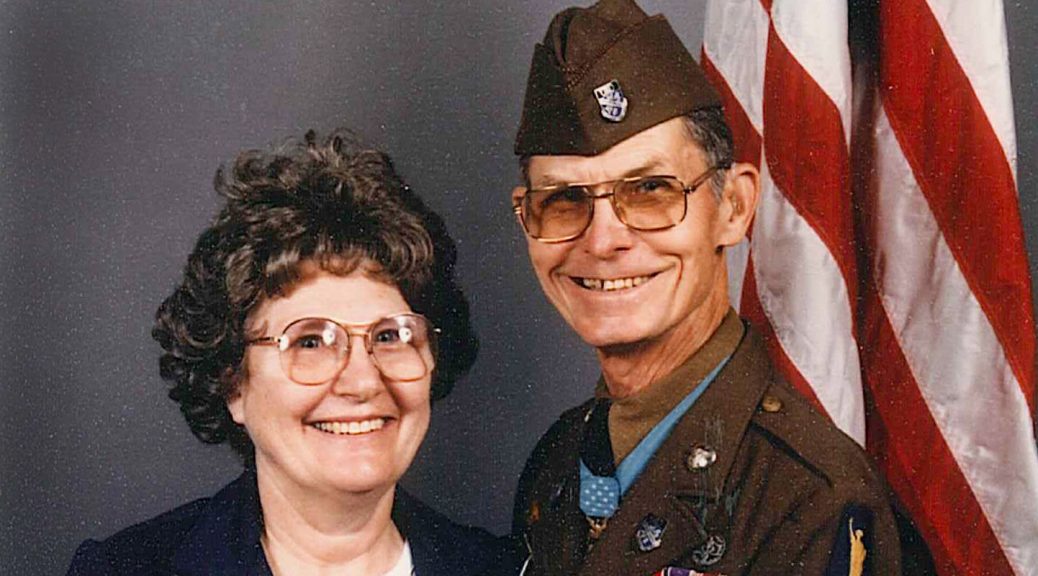
Mel Gibson’s epic Hacksaw Ridge is not a work of fiction – it’s inspired by the incredible life and achievements of Desmond Doss.
On April 1, 1942, Desmond Doss joined the United States Army. Three and a half years later, he stood on the White House lawn, receiving the nation’s highest award for his bravery and courage under fire. Of the 16 million men in uniform during World War II, only 431 received the Congressional Medal of Honor. Among these was a young Seventh-day Adventist Christian who refused to carry a gun and had not killed a single enemy soldier. His only weapons were his Bible and his faith in God. President Harry S. Truman warmly held the hand of Corporal Desmond Thomas Doss, as his citation was read to those gathered at the White House on October 12, 1945. “I’m proud of you,” Truman said. “You really deserve this. I consider this a greater honor than being president.”
When Pearl Harbor was attacked, Desmond was working at the Newport News Naval shipyard and could have requested a deferment. But he was willing to risk his life on the front lines in order to preserve freedom. He wanted to be an Army combat medic and assumed his classification as a conscientious objector would not require him to carry a weapon. When he was assigned to an infantry rifle company, his refusal to carry a gun caused his fellow soldiers to view him with disdain. They ostracized and bullied him. One man warned, “Doss, when we get into combat, I’ll make sure you don’t come back alive.”
Desmond was raised with a fervent belief in the Bible. He took the Ten Commandments, personally—especially the words, “Thou shalt not kill.” He also took the fourth commandment seriously. His religious upbringing included weekly church attendance, on the seventh day. The Army was exasperated when he asked for a pass to attend church every Saturday. His officers saw him a liability, a soft spoken skinny kid from the south and a Bible reading misfit. They tried to intimidate him, gave him extra duties, falsely declared him mentally unfit and attempted to court martial him. He believed his duty was to obey God and serve his country—in that order, and he refused to leave.
Desmond served in combat on the islands of Guam and Leyte. In each military operation he exhibited extraordinary dedication to his men. While others were taking life, he was busy saving life. As enemy bullets whizzed past and mortar shells exploded around him, he repeatedly ran to treat a fallen comrade and carry him back to safety. By the time they reached Okinawa, he had been awarded two Bronze Stars for valor.
In May, 1945, Japanese troops were fiercely defending Okinawa, the only remaining barrier to an allied invasion of their homeland. The American target was capturing the Maeda Escarpment, an imposing rock face the soldiers called, Hacksaw Ridge. After they secured the top of the cliff, Japanese forces suddenly attacked. Officers ordered an immediate retreat. As a hundred or more lay wounded and dying on enemy soil, one lone soldier disobeyed those orders and charged back into the firefight. With a constant prayer on his lips, he vowed to rescue as many as he could, before he either collapsed or died trying. His iron determination and unflagging courage resulted in at least 75 lives saved that day, May 5, 1945, his Sabbath.
Several days later, during an unsuccessful night raid, Desmond was severely wounded. Hiding in a shell hole with two riflemen, a Japanese grenade landed at his feet. The explosion sent him flying. The shrapnel tore into his leg and hip. While attempting to reach safety, he was hit by a sniper’s bullet that shattered his arm. His brave actions as a combat medic were over. But not before insisting that his litter-bearers take another man first before rescuing him. Wounded, in pain, and losing blood, he still put the safety of others ahead of his own.
Before being honorably discharged from the Army in 1946, Desmond developed tuberculosis. His illness progressed and at the age of 87, Corporal Desmond Thomas Doss died on March 23, 2006. He is buried in the National Cemetery, Chattanooga, Tennessee.
For more information, please visit: www.desmonddoss.org.
Image courtesy of Desmond Doss Council.
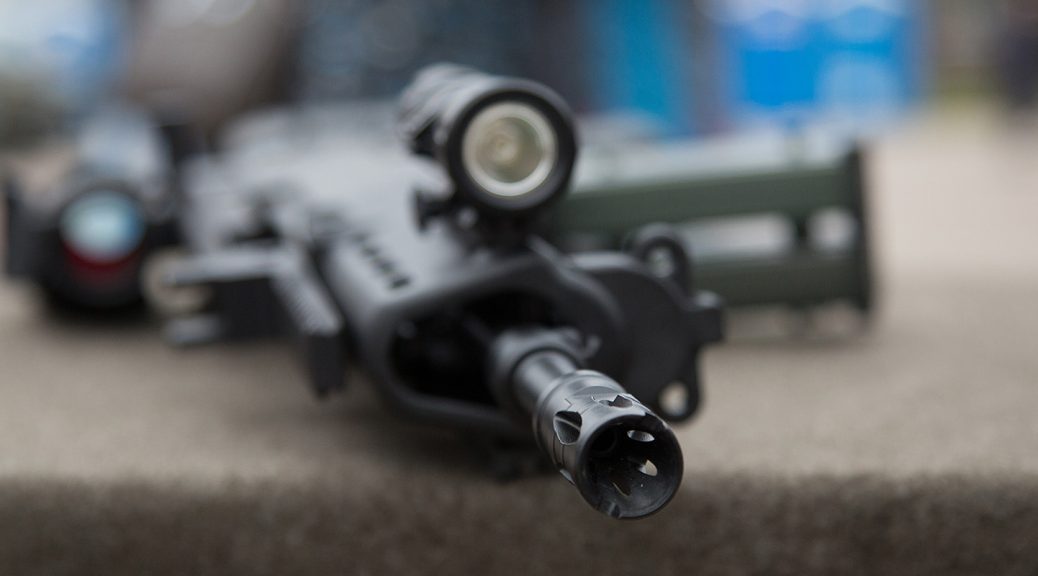
One man refused to carry a weapon, the other willingly embraced violence in order to protect the innocent – who can say who was right?
By Kent Kingston.
Meet Sam Childers. In many ways he’s about as different from Hacksaw Ridge’s Desmond Doss as you can imagine. In other ways, he’s remarkably the same.
Sam Childers is a patriotic American from the backwoods of Pennsylvania. After a misspent youth and young adulthood of drugs, violence and crime, he began to reform his lifestyle, worried that if he kept on with the way he was going, he’d soon be dead. Following his wife back to the Baptist faith of her childhood, Sam became a committed believer himself, even taking to the pulpit at times.
The story could’ve ended there, with Sam approaching old age gracefully as his construction business prospered, his porch rocking chair surrounded by adoring grandchildren. But a church mission trip to Sudan changed all that. Confronted by the violence and suffering he saw there and sensing clear direction from God, Sam sold his business and began a lifelong campaign to rescue the war-traumatised children of what is now South Sudan. Together with local and overseas supporters, Sam built an orphanage that has fed and housed more than 1000 children over the years. He also began to mount armed expeditions to rescue children kidnapped by Joseph Kony’s brutal terrorist group, the Lord’s Resistance Army.
Yes. Armed expeditions. That’s how Sam Childers differs from the thousands of other humanitarians who have devoted their lives to relieving poverty and suffering in developing countries. And in contrast with the political wariness of most foreign aid workers, Sam became quite friendly with a number of southern rebel militiamen, who accompanied him as he willingly shouldered an AK-47 on his rescue missions.
And so the legend of the Machine Gun Preacher was born — and the film. Like Desmond Doss, Sam’s story has been immortalised on the silver screen, with Gerard Butler (Tomb Raider: Cradle of Life, Phantom of the Opera, 300) in the lead role.
Two men. Both patriotic Americans. Both claiming the call of God prompted their lifesaving work in warzones. But while one man refused to carry a weapon, the other has willingly embraced violence in order to protect the innocent.
The contrast between these two brave men poses all kinds of questions. Which of them made the right choice in relation to violence? Did one or the other of them get their message from God garbled? Were their missions really a result of divine calling or just overactive imaginations? Can we realistically explain their consistently selfless actions without some kind of otherworldly guidance?
“For everything there is a season, a time for every activity under heaven,” said Solomon, king of ancient Israel and reputedly the wisest man who ever lived. “A time to be born and a time to die. A time to plant and a time to harvest. A time to kill and a time to heal…”
Sobering words, and not ones to be taken lightly, considering the violence that has been done, and is still being done, by those marching under the banner of religion or freedom or national pride. What’s your answer? Is there “a time to kill”?
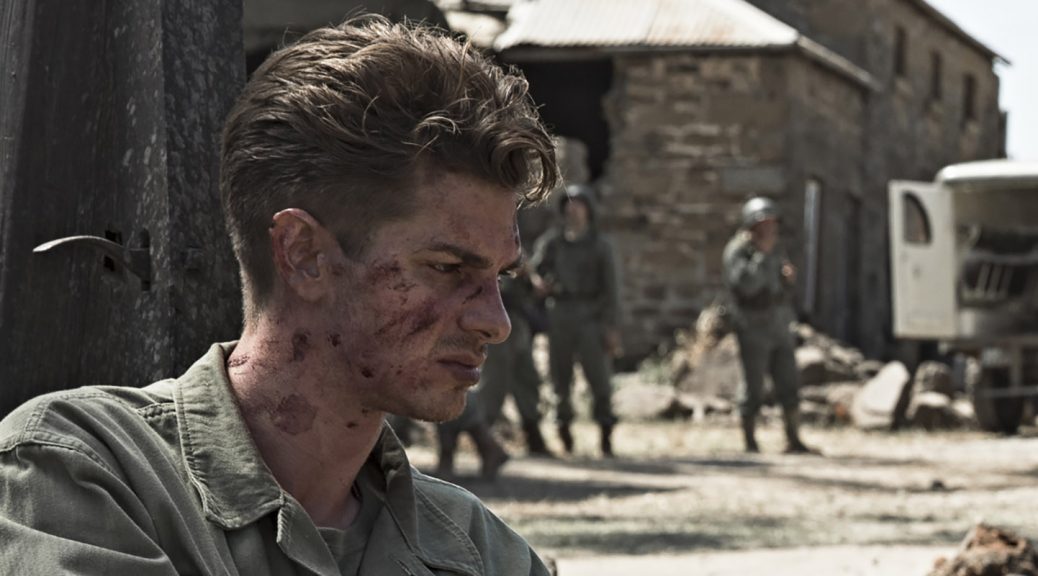
“He who wishes to fight must first count the cost,” said Chinese general Sun Tzu in The Art of War, his book on military strategy.
By Vania Chew.
Desmond Doss was all too aware of the cost that would come with war. During his childhood, he often spent time looking at a framed poster of the Ten Commandments that his father had bought at an auction. The poster depicted Cain, a man who had killed his brother, holding a club and standing over his brother’s body (you can read the story in Genesis 4).
“When I looked at that picture, I came to the Sixth Commandment, ‘Thou shalt not kill,’” said Doss. “I wondered how in the world could a brother do such a thing? It put a horror in my heart of just killing.”
How could a man go to war if he refused to kill? If he didn’t want to carry a weapon, the battlefield should be the last place that he wanted to be. In fact, Doss was offered plenty of opportunities to avoid the wartime conflict — even a psychiatric discharge that would deem him unfit for war. But he wouldn’t accept the discharge.
Irish statesman Edmund Burke once said, “The only thing necessary for the triumph of evil is for good men to do nothing.”
Doss was a conscientious objector because he didn’t want to take lives. However, he also recognised that his service could help save lives. And he wasn’t content to do a poor job. He was determined to serve to the best of his ability. As Doss lowered soldier after soldier to safety in the midst of enemy fire, he would pray, “Lord, help me get one more!”
Matthew 7:12 says, “Do to others whatever you would like them to do to you.” (NLT). If we were in positions of need, we would want people to do their best to help us. Doss’ story of service should inspire us to help those in need — not only to serve, but to go beyond the call of duty.
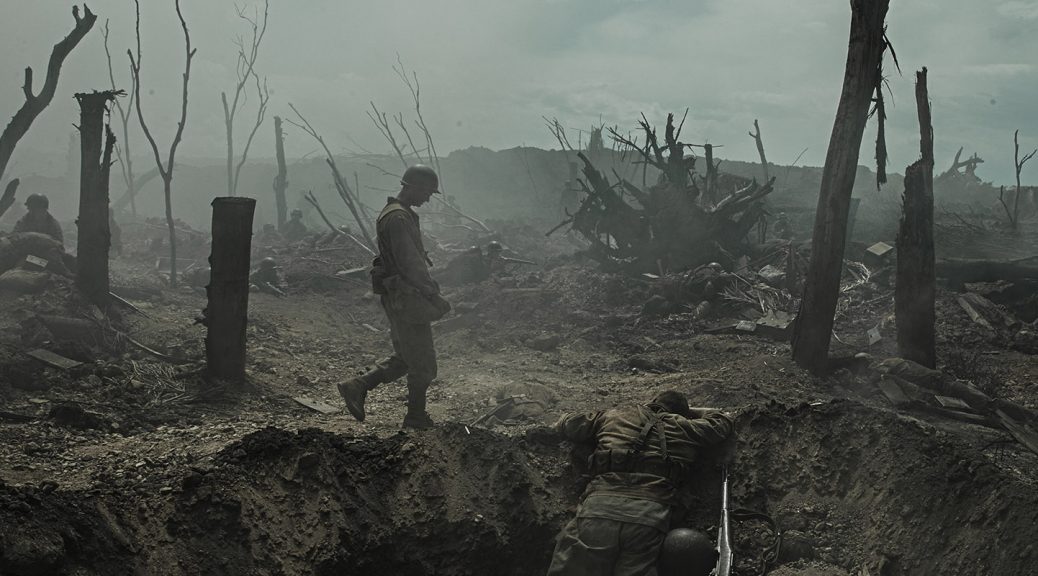
“I was willing to go to the front lines to save life, but not to take life,” said Private Desmond Doss.
By Jarrod Stackelroth.
Here was a man who gave up the comforts of home and safety — including his new wife — and even had to endure physical and mental abuse in the army, as well as the stress of legal proceedings against him, all so he could go to the front lines to save lives.
He even volunteered. It’s not like he was forced to go and made the best of a bad situation.
He actually wanted to go so he could make a difference — so he could fight against the injustice that threatened to engulf the world.
Now that is sacrifice.
Many of those that Doss fought and served with were injured or even killed.
These days, the biggest thing we sacrifice is our pocket change to charity, our comfort to help a cause, or a creature comfort to save money for something bigger like a house. The word sacrifice is almost foreign to our vocabulary.
In our comfortable material society, those who probably understand sacrifice best are parents. They sometimes give up jobs, hobbies or even go without luxuries to ensure their kids have everything they need.
So what is the ultimate driving force for sacrifice? Love. Love, the true deep down kind that takes over our whole lives, like the kind of love a parent has for a child, is the greatest motivating factor for sacrifice. Fear and other motivations can drive us to do amazing things and they can push us, but the purest and strongest motivation — one that pushes us to suffer sacrificial loss — is love. It is the kind of love that’s like that of a parent who would run back into a burning building without question to save their child. That is the kind of love and sacrifice Doss was able to exhibit.
The Bible says “Greater love hath no man than this, that a man lay down his life for his friends” (John 15:13).
When Doss was injured, he actually gave up his place on the stretcher to help someone who was wounded worse. That is love.
Jesus had the riches and power of heaven and yet He gave it all up to sacrifice His life for humanity. The ultimate sacrifice.
“I came to seek and save the lost,” He said (Luke 19: 10).